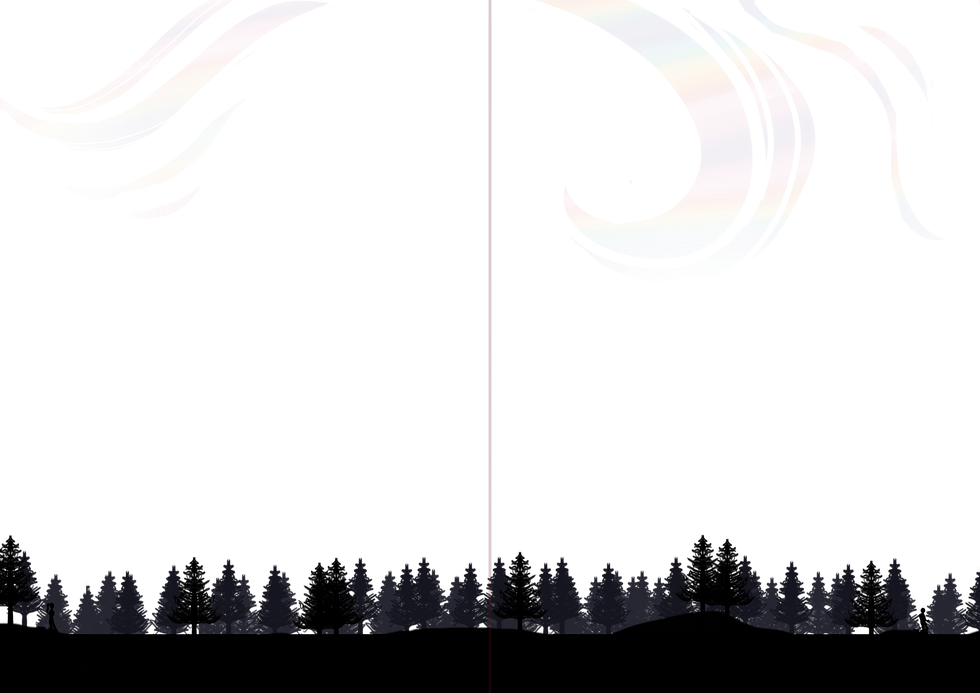This is the Way the World Ends
- Jul 23, 2025
- 4 min read
Niamh McGonnell-Hall reviews the romance thriller The Gorge, the Apple TV+ film that is a field trip for T.S. Eliot enthusiasts.
Please note: this piece contains spoilers for the film The Gorge.

If you have ever studied English Literature from Year 12 onwards, you would have had the privilege (or horror) of studying the poetry of T.S. Eliot. If you’re also a film buff, then today is your day as the Apple TV+ film The Gorge, released on Valentine’s Day 2025, is your perfect Friday night movie.
This film boasts the talents of Miles Teller, Anya Taylor-Joy and Sigourney Weaver, who whip this movie into a tension-filled romance with an undertone of 1984-esque private-sector paramilitary lies. This Valentine’s Day thriller also has plenty more to offer to the literary viewer. Whilst the opening scene rehashes the film as an action thriller, with Drasa (Anya Taylor-Joy) sniping the perfect shot with a pencil case full of bullet shells, it slowly reveals its more literary influences. The introduction of Levi (Miles Teller) with a mysterious notebook has registered on my literary radar instantly, and as the first half of the film progresses, we start to see more and more intertextuality.
In the solitary watchtower over the mist-veiled gorge, Levi finds the likes of T.S. Eliot and Robert Frost, another Modernist and human experience-focused poet, on the teeming bookshelf. Behind this exact bookshelf are quotes from every watchman since the very beginning of the gorge. And, of course, even more T.S. Eliot intertextuality. I now begin to deduce that this film may be more connected to literature than I first thought.
Now for the real pièce de résistance, the inhabitants of the mysterious gorge themselves. I was having a full-blown fangirl episode the moment J.D. (Sope Dirisu) said the screams and shrieks coming from the rocky abyss belonged to the “Hollow Men.” This action thriller had now bypassed small literary allusions and took a wild turn into T.S. Eliot-ville.
“The Hollow Men” is a T.S. Eliot poem that captures the post-World War I disillusionment, emptiness and isolation by depicting a “world between life and death” (The Gorge, 1:11:00). It describes the state of men as scarecrow-like figures with their “headpiece filled with straw” (Eliot, 4) and their person a “shape without form” (Eliot, 11). The Hollow Men of The Gorge cater to the poetry enthusiast and the action thriller addict alike. The depiction of the twisted men who attempt to scale the gorge walls harks back to the visual imagery of Eliot's poem, including his reference to the mad Mistah Kurtz of Joseph Conrad's Heart of Darkness. The zombie-like nature of these creatures puts T.S. Eliot's imagery on the big screen and visually demonstrates how unrecognisable these men have become in their transformed selves, whilst simultaneously catering to the less metaphorical seekers of action thriller entertainment. I am now on the edge of the couch as J.D.’s declaration has now cemented that the main premise of this Apple Original has been plucked straight from a 1925 modernist poem.
Both T.S. Eliot and Robert Frost were focused on the portrayal of the disillusioned and isolated human experiences of their time. Similarly, the writer of the film, Zach Dean, was influenced by the COVID-19 lockdown. “It was a really weird time and there was this massive unknown, which is represented as the gorge in this film”.[1] The intertextuality from these literary sources increases the lonely uncertainty of this film and also provokes deeper questioning about the purpose of the specific poetic allusions. Why was this particular poem chosen?
In a way, the COVID-19 lockdown was our isolated “world between life and death” (The Gorge 1:11:00). So however contradictory a genre-bending thriller romance with zombie-like monsters, coupled with modernist poetry, looks from the outside, on the inside, they are a didactic coupling that connects a post-World War I disillusioned society to our 21st-century isolation, both during and maybe even before the pandemic.
The genius of choosing this particular poem, one that would cater to both the impossible odds of action-thriller-romance and still allow the film to allude to deeper questions of our current human experience through the Hollow Men, is what makes The Gorge a must-see. On a lighter note, my BookTok is already filled with edits of Levi and Drasa, proving that the romantic elements of this film are already making their way into the hearts of many with its dystopian, against-all-odds romance.
Now for a note on the soundtrack. With the likes of a Devlin and Ed Sheeran rendition of “All Along the Watchtower”, Twisted Sister Christmas covers and 70s punk rock, the film exudes a nostalgic feel. Film composers Trent Reznor and Atticus Ross also utilise their score as another way of slipping in some lines from T.S. Eliot's poetry, combining subdued synth melodies with titles, such as “but a whimper” and “the shivering world”, for an even more unnerving soundtrack that all but enhanced the film's uncertain mood.
Amongst the landscape of the Rauma River in Norway, this disturbing Apple Original interrogates the current human experience through the lens of a thriller film, drawing on a specific selection of poetry to masterfully and subtly cue a commentary on our current world. If we think about it, this coupling of T.S. Eliot, action-thriller zombies and an against-all-odds romance doesn’t seem strange at all.

ENDNOTES:
[1] Weiss, Josh. “How Pandemic Isolation Inspired Zach Dean To Write Scott Derrickson’s Genre-
Bending Thriller ‘The Gorge’” Forbes, 1 March 2025, https://www.forbes.com/sites/joshweiss/2025/02/17/how-pandemic-isolation-inspired-zach-dean-to-write-scott-derricksons-genre-bending-thriller-the-gorge/.
Eliot, T.S. “The Hollow Men.” 1925.
The Gorge. Directed by Scott Derrickson. Apple Studios. 2025.




Comments